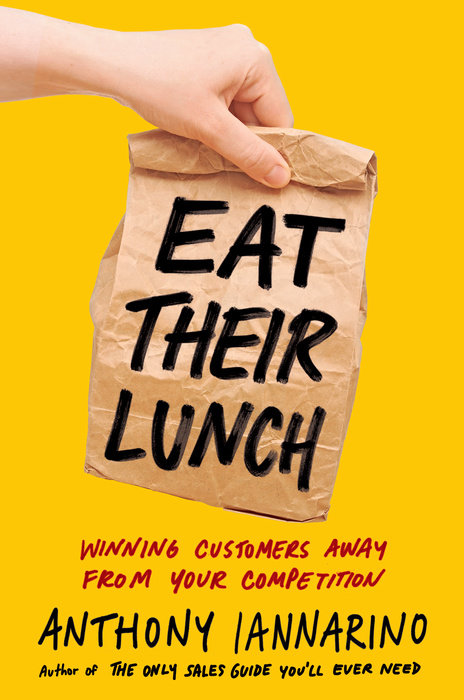The Gist:
- There is never a reason to trash your competition.
- The more mature your contact, the more you’ll alienate them by focusing on your competitor.
- You best approach to differentiating yourself from your competition is enriching the sales conversation.
The other day, a salesperson asked for my feedback on a prospecting email he’d written. His email began by asking me (i.e., the prospective client) what my existing partner was doing for me, and whether or not I was happy with their program and their support. The email continued with a list of “pain points,” a menu of the kind of problems that could compel me to change. These problems, he concluded, should motivate me to fire my current partner and switch to his company. This approach is common when someone wants to trash competition instead of focusing on adding value.
Needless to say, I had a lot of feedback. But it’s worth breaking down this competitor-focused approach to see exactly why it doesn’t work.


How Mature Business People Think
The first reason that message would fail to gain a meeting is that mature businesspeople understand that their partners will have some challenges producing the results they need. In fact, they also have clients that they struggle to take care of, at least from time to time. They want their clients to extend grace to them when they need it, so they try to treat their partners the same way. Perhaps more importantly, though, they know that switching partners means trading one set of problems for a different set of problems. Trashing competition does nothing to establish trust or build a productive sales conversation.
A Self-Oriented Approach
In the email, the salesperson was trying to displace his competition, a worthy goal but poorly pursued. His main goal, though, was to sell his solution, something his email made perfectly clear. There was no intention to help me improve my business. His mistake was not recognizing that only by helping me improve my business could he hope to replace my current partner.


A Lack of Differentiated Value
You create exactly zero value by mentioning your competition in a prospecting email, on a cold call, or in a meeting. Any conversation about your competition takes up time that would be better spent in a sales conversation that creates value for the client. It’s a mistake to believe that confessing your competitor’s sins (real or imagined) prevents your client from recognizing yours. What is certain is that this salesperson strongly believes in the legacy solution approach to sales, given that he provided the problem and the solution in two sentences.
Nothing to Teach
Your only vehicle for creating value for your client is the sales conversation. Creating value is what causes you to win a deal, after which you can deliver additional value through your company, product, and service. If the best thing you can tell your prospective client is that you believe you can do better than your competition, you have nothing to teach, but much to learn.
There is no limit to what you might be able to teach your clients about how to get better results. But to do so, you would have to know where they need counsel, something that comes before purchasing your “solution.”
Playing, Not Consulting
Most salespeople are content to play the game, engaging in a contest with their competitors over who has the best solution or the sleekest slide deck. A better option is to rise above both the scrum and the playing field, explaining the game being played to your prospective client.
There is nothing wrong with being an expert on what you sell. What’s much better, though, is expertly helping your prospective clients improve their business. There is nothing consultative about trashing your competitors.
Solving the Wrong Problem
Whatever you sell does solve a problem for your client. But when you stop at that surface-level understanding of the problem, you are solving the wrong problem. It’s Level One selling, the kind that positions you as a peddler and your product a commodity. To gain a decision-maker’s time and attention, you have to recognize and sell your ability to solve more serious problems.
The email provided no evidence that the salesperson understands the more difficult problems he should be solving for his clients.


What You Put in Writing
There was nothing in the email that crossed a line, but the writer did spell out what he believes to be his competitor’s challenges, making it easy to thwart his efforts to displace his competition. Someone protective of their relationship might forward that email, circle the wagons, and block him from ever getting a meeting.
O’Doyle Rules!
Your value proposition for a meeting can’t be “O’Doyle rules!” It ends badly for the O’Doyles.
Again, we run headlong into the idea that the solution is everything and value creation inside the conversation is nothing. The way you prove you have something more to offer is through your conversation. Your product or service provides no value inside that conversation, since it offers no counsel about how to improve your client’s results in some larger way than replacing their existing partner.
What Email Suggests
Email is the primary medium for those who lack the chops to pick up the phone and trade enough value to command a meeting, something that is not possible if all you can say is that your competitor is terrible and your solution is better.
The Game Moves on Without You
Over time, the way a game is played changes, sometimes dramatically. A championship football team from 1967 would have a very tough time even making the playoffs in 2021. The game would be faster, the plays more complex, with the misdirection that creates an advantage only available to them after a play was run a number of times.
Today, there are still those who are selling the way people sold five decades ago. The game is moving on without them, whether or not they know it.
Do Good Work:
- Where do you look to find what should be compelling your client to change?
- How do you differentiate yourself without ever mentioning your competition?
- What are you doing to play the game in a way that ensures you win?

Essential Reading!
Get my 3rd book: Eat Their Lunch
"The first ever playbook for B2B salespeople on how to win clients and customers who are already being serviced by your competition."
Buy Now







.jpg?width=768&height=994&name=salescall-planner-ebook-v3-1-cover%20(1).jpg)



Comments